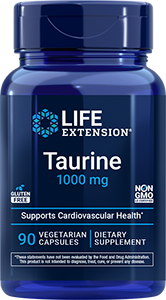
Newsletter
Newsletter
Omega-3 fatty acid intake lowers risk of dry eye and Alzheimer’s disease

Medical journals continue to highlight the diverse benefits of omega-3 polyunsaturated fatty acids. Recently, a study found that daily intake of 1,440 mg of the omega-3 fatty acid EPA and 960 mg of the omega-3 DHA improved the symptoms of dry eye among frequent users of visual display terminals, particularly in those with low blood levels of omega-3s. Another article reported that an omega-3-rich diet helped lower the risk of cognitive decline, and omega-3 intake lowered the risk of the development of Alzheimer’s disease.
The first study, published earlier this month in Indian Journal of Ophthalmology, evaluated the eye health of 950 screen users who received eight capsules containing 180 mg EPA plus 120 mg DHA or an olive oil placebo daily for six months. Researchers assessed dry eye symptoms at the beginning of the study and then again after one, three and six months, and found that the group receiving omega-3 capsules had improvements in these symptoms, while the participants who received a placebo did not experience significant improvement.1
Meanwhile, the second study, published in the American Journal of Clinical Nutrition, found that long-term users of omega-3 fatty acid had a 64 percent lower risk of developing Alzheimer’s disease compared to nonusers. In subgroup analyses, this protection was significant for men, individuals aged 65 years and older, carriers of the APOE4 mutation (which increases the risk of Alzheimer’s disease) and those with mild cognitive impairment.2
The researchers found that multiple measures of omega-3 status support a significant effect of omega-3s for preventing cognitive decline and dementia.
“Our findings suggest that 1) long-term omega-3 fatty acid [intake] may reduce risk of Alzheimer’s disease; 2) dietary omega-3 fatty acid intake, especially DHA, may lower risk of dementia or cognitive decline; and 3) peripheral biomarkers of omega-3 fatty acids may serve as predictors of cognitive decline,” the authors concluded.
Products
Apply What You’ve Learned: Cognitive Decline
- Cognitive decline is a change in memory and thinking associated with growing older. While the condition can be a precursor to dementia caused by Alzheimer’s or cerebrovascular disease, for most older individuals that is not the case; they experience some degree of cognitive decline that does not progress to, and is not caused by, more serious conditions.3
- Older individuals seeking to prevent or treat cognitive decline often turn to nutrients that support a healthy brain. These include acetyl-L-carnitine, phosphatidylserine, alpha-GPC, ginkgo, huperzine A and more.4-8
- Changes in thinking, memory and mood also can be due to the use of some over-the-counter and prescription drugs, as well as to other unrelated changes in health status.
- Consult your health care provider if you or your family notice changes in your memory or ability to carry out daily living activities.
References
- Bhargava R et al. Indian J Ophthalmol. 2023 Apr;71(4):1619-1625.
- Wei BZ et al. Am J Clin Nutr. 2023 Apr 5;S0002-9165(23)46320-4.
- Centers for Disease Control and Prevention. “Subjective cognitive decline.” https://www.cdc.gov/aging/data/subjective-cognitive-decline-brief.html
- Montgomery SA et al. Int Clin Psychopharmacol. 2003 Mar;18(2):61-71.
- Cenacchi T et al. Aging (Milano). 1993 Apr;5(2):123-33.
- De Jesus Moreno Moreno M. Clin Ther. 2003 Jan;25(1):178-93.
- Kandiah N et al. CNS Neurosci Ther. 2019 Feb;25(2):288-298.
- Gul A et al. J Chin Med Assoc. 2019 Jan;82(1):40-43.
Featured Life Extension Magazine® Article
Katie Couric: A Tireless Advocate for Colon Cancer Awareness
By Laurie Mathena
Former NBC TODAY show host Katie Couric lost her husband to colon cancer in 1998. He was diagnosed when his cancer was at an advanced stage, resulting in his death nine months later. Routine colon cancer screening could have saved his life.
Two years later, Couric highlighted the importance of colon cancer screening before the U.S. Senate Select Committee on Aging and cofounded the National Colorectal Cancer Research Alliance (NCCRA), which funds research aimed at developing improved tests and treatments for the disease.
Read Full Article
What's Hot
Health Concern
Higher midlife omega-3 may mean better brain
Findings from a study reported October 5, 2022, in Neurology® suggest a brain benefit for consuming a high amount of omega-3 fatty acids at midlife.

Cognitive Decline & Mild Cognitive Impairment
Proactive lifestyle changes, cognitive training and nutritional interventions have been shown to decrease the rate of intellectual decay and potentially reverse age-related cognitive decline.
Related Life Extension Magazine® Articles

Life-Expectancy Impact of Fish Oil
Higher omega-3 levels correlate with greater human longevity. Flavored, chewable, fish oil gummies make it easy to obtain.

Fish Oil Reduces the Fires of Inflammation
Chronic inflammation is involved in multiple disorders. Omega-3-rich fish oil rebalances the eicosanoid pathway to safely help reduce inflammation.
Life Extension Magazine® Issue Now Online
A remarkable number of healthy-longevity findings have been published over the past 18 months.





